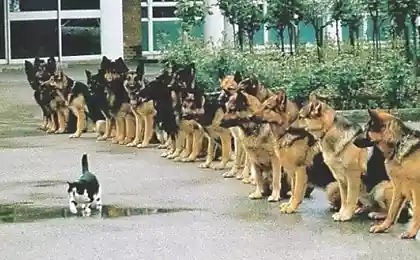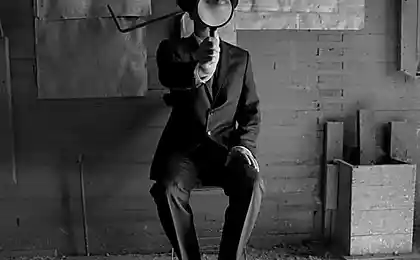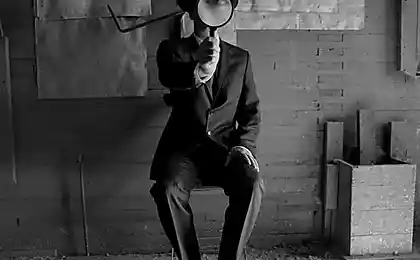1016
Self-discipline

The first of the five pillars of self-discipline is recognized. Recognition means that you perceive reality accurately and consciously aware of what you perceive.
This may seem simple and obvious, but in practice it is extremely difficult. If you experience chronic difficulties in a particular area of life, there is a strong likelihood that the root of the problem is the refusal to accept reality as it is.
Why recognition is a pillar of self-discipline? The most basic mistake that people make with respect to the self-discipline, is the inability to accurately understand and accept their current situation. Remember the analogy between self-discipline and strength training? If you are going to succeed in your weight training, you need to understand how much weight you have raised. How strong are you now? Until you find out where you stand right now, you can not select a reasonable exercise program.
If you do not consciously recognize where you stand now, at what level of self-discipline, it is unlikely that you are going to do to improve the situation in this area. Imagine the potential bodybuilder who, not knowing how much weight he can lift arbitrarily takes training regimen. Without a doubt, the selected weight is either too heavy or too light. If the weight is too heavy, bodybuilder can not pick it up, and thus will not experience any or muscle growth. And if the weight is too easy one, the he will raise it easily, but it also does not lead to an increase in muscle mass.
Similarly, if you want to develop their self-discipline, you should know where you are right now. How strong is your self-discipline now? What is the challenge for you is easy, and what is not possible for the solution you?
Here is a list of issues that will help you reflect on where you stand right now (the problems presented in random order):
You take a shower every day?
You get up every morning at the same time? Including weekends?
Do you overweight?
Do you have any attachment (caffeine, nicotine, sugar, etc.) That you want to deal with, but have not yet done so?
Your mailbox is empty right now?
Your desktop is given in order and well organized?
Your home is given in order and well organized?
How much time you are wasting on a typical day? At the weekend?
If you give someone a promise, there is at least a chance to share what you promise to follow?
If you give a promise to myself, there is some chance that you execute it?
How well organized hard drive of your computer?
How often do you exercise?
What is the greatest physical challenge you faced, and how long has it been?
How many hours do you spend on the job during the week?
How many items in your to-do list more than 90 days?
Do you have clear written goals? Do you have written plans to achieve them?
If you lost your job, how much time do you spend each day on the search for a new job, and how much effort you put into it?
How much time per day do you spend watching TV? Could you give up television for 30 days?
How do you look right now? What does your appearance say about your level of self-discipline (clothes, haircut, etc.)?
What you eat is healthy food, or it is based on taste and nutritional value?
When the last time you consciously instilled in their new positive habits? Get rid of a bad habit?
You borrow money? Do you think that debt is an investment or a bug?
You have decided in advance to look at our site, or is it just happened?
Can you say what you will do tomorrow? And next weekend?
On a scale of 1 to 10, how would you rate your level of self-discipline?
What more can be achieved if you could answer the last question from 9 to 10?
Just as there are different muscle groups that you train different exercises, there are different areas of self-discipline: the discipline of sleep, diet discipline, discipline develop habits, discipline, communication, etc. For the development of different areas of self-discipline require different types of exercises.
You should identify areas where your discipline suffers, assess where you are right now, to recognize and accept your starting point, and develop a program for training in order to improve this area. For example, if you hardly get up out of bed at 10 o'clock in the morning, there is a chance that you can wake up at 5 o'clock every morning? Probably not. But could you get up at 9:45 in the morning? It is very likely. And once you reach it, you can improve your progress until 9:30 or 9:15? Of course.
Without the recognition you get ignorance. With ignorance you just will not know how much you are disciplined and you probably did not even think about it. You do not know what you do not know. You will only have fuzzy concept that can and can not do. You will achieve some success in simple cases and to make serious errors in large, but you most likely will be the task or blame yourself than you wish to admit that the "weight" is too heavy for you, and that you need to become stronger. < br />
Without recognizing you are locked in a false view of reality. You either overly pessimistic or optimistic with respect to your abilities. And, as an intern, who is not aware of its own power, you can not do anything better, because you can hardly get in the zone proper preparation for the happy occasion. Pessimistic view will make you raise only light weight, avoiding heavy that you can actually pick up, and that will make you stronger. Optimistic outlook will make you lift too heavy weight, which also will not make you stronger.























